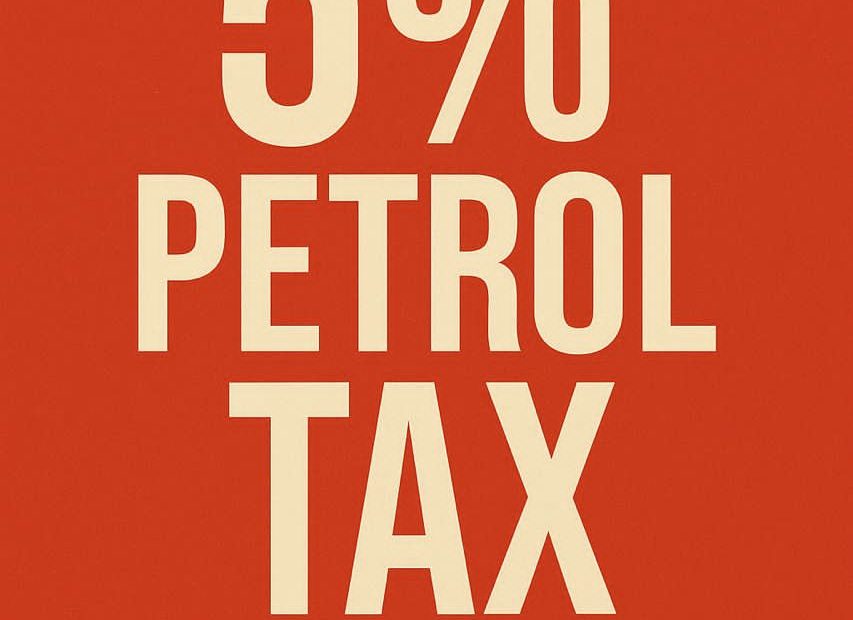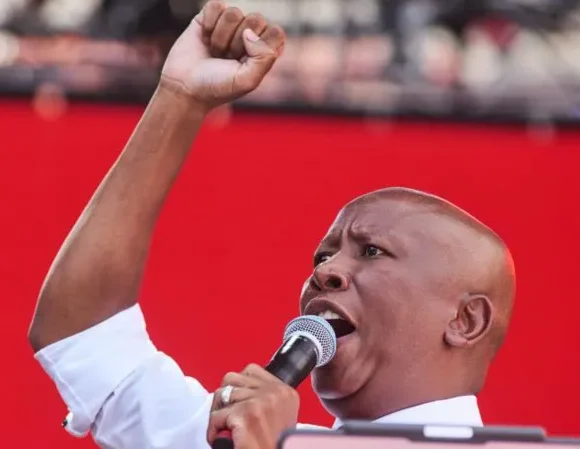Understanding the True Economic Impact of Nigeria’s 5% Petrol Tax

Nigeria
Features – By Otunba (Dr.) Abdulfalil Abayomi Odunowo
The announcement of a 5% petrol tax, set to take effect from January 2026 under the Harmonized Tax Act, has reignited a deeply critical conversation about the financial burdens borne by ordinary Nigerians amid persistently challenging economic circumstances. In a nation still grappling with the repercussions of subsidy removals, soaring inflation rates, and rising transportation costs, the introduction of this fuel surcharge raises urgent questions about equity, governance, and economic sustainability.
This article aims to provide an in-depth exploration of the real cost implications of this tax, particularly for Nigerian households, workers on minimum wage, small businesses, and the economy overall. Beyond the headline percentage, the 5% petrol tax carries ripple effects on the cost of living that merit sober understanding and a pressing call for government transparency and responsibility.
The Weight on Nigerian Households’ Budgets
For the average Nigerian family, fuel represents an indispensable cost essential to commuting, running small businesses, and managing day-to-day activities. To illustrate, consider a household consuming 600 liters of petrol monthly at an approximate pump price of ₦900 per liter. The monthly expenditure on fuel before tax stands at ₦540,000. The new 5% tax translates to an additional monthly cost of ₦27,000, escalating the total fuel expenditure to ₦567,000.
Annually, this additional ₦324,000 paid solely as tax corresponds to nearly 360 liters of petrol—representing a significant portion of the family’s annual fuel needs. It is essential to grasp that this sum does not exist in isolation. It competes against the cost of other basic necessities such as housing, education, healthcare, and food, placing extraordinary pressure on household budgets.
Minimum Wage Earners: A Looming Crisis
The disproportionate burden of the petrol tax on Nigerians earning minimum wage or subsisting on modest incomes is particularly concerning. With the new minimum monthly wage set at ₦70,000, the total annual income for such a worker amounts to ₦840,000. When juxtaposed against the ₦324,000 annual increase in fuel tax for 600 liters consumed monthly, nearly 39% of their entire income could be consumed by this levy alone.
Even if fuel consumption is halved to 300 liters per month, the tax would still impose an additional ₦162,000 annually, which approximates nearly two and a half months’ wages dedicated exclusively to fuel tax. This leaves scant room for essential living expenses and threatens to deepen the cycle of poverty and economic exclusion for millions of Nigerians. Such financial strain is unsustainable without supportive measures.
Broader Economic and Social Impact
The consequences of the petrol tax extend decisively beyond the household level, permeating various facets of Nigeria’s economy:
Transportation Sector: Commercial transport operators, including buses, taxis, and trucks, heavily reliant on petrol, will face escalated operational costs. These entities may pass on fuel tax-induced expenses to consumers by increasing fares, thereby raising the cost of daily commuting. The impact will be severe for commuters in suburban and rural areas, who often lack alternative transportation options.
Logistics and Supply Chains: The haulage sector, integral to the movement of goods—ranging from agricultural produce to construction materials—will also bear increased fuel costs. For example, a logistics company spending ₦5 million monthly on fuel could incur an extra ₦250,000 due to the 5% tax. These added costs are likely to be reflected in the prices of goods, feeding into inflationary pressures and eroding consumers’ purchasing power.
Economic Inflation: Fuel prices have already surged by nearly 400% since the removal of subsidies, contributing substantially to inflation rates that reached double digits. The introduction of this tax adds another layer of cost that will intensify the difficulties Nigerians face in affording basic goods and services.
These widespread effects underscore the critical need for policies that not only generate revenue but also safeguard the economic wellbeing of the populace.
Government’s Position and Policy Intentions
The current government defends the petrol tax as a necessary fiscal measure aimed at expanding Nigeria’s tax base, reducing over-reliance on oil revenues, and generating funds for vital infrastructure development. The tax forms part of broader reforms under the Harmonized Tax Act, intended to modernize Nigeria’s tax system and enhance government revenue streams.
Officials argue that the funds raised will be channeled towards improving transportation networks, boosting local refining capacity, and supporting economic diversification efforts. However, there remain significant concerns regarding the transparency of revenue allocation and whether the anticipated benefits will materialize, especially for low-income citizens and small business operators.
Critics highlight that imposing additional burdens without corresponding safety nets or relief mechanisms may exacerbate hardship rather than alleviate it.
Calls for Transparency and Social Protection
To address the legitimate concerns surrounding the 5% petrol tax, the government must demonstrate clear commitments to transparency and social responsibility:
Clear Accounting of Tax Revenue Use: The government should publish detailed plans on how the revenue generated will be utilized, including timelines and measurable targets. Public trust hinges on visible accountability and tangible outcomes.
Protection for Vulnerable Groups: Immediate measures to cushion the impact on minimum wage earners, small businesses, and transport operators are essential. Targeted subsidies, cash transfers, or relief programs can help mitigate the shock on household budgets.
Investing in Local Energy and Transport Solutions: Long-term fiscal stability requires investments aimed at reducing fuel dependency, such as completing and operationalizing local refineries and developing mass transit infrastructure. This would support economic resilience while reducing inflationary risks tied to imported fuels.
Phased Implementation: A gradual rollout of the tax could allow citizens and enterprises to adjust budgets and operations accordingly, minimizing disruption and economic dislocation.
The Ethical Imperative for Fair Governance
The 5% petrol tax, while seemingly modest, reveals a stark economic reality for millions of Nigerians facing precarious livelihoods. For individuals subsisting near the minimum wage threshold, such fiscal policies can drastically reduce disposable income, squeeze access to essential services, and deepen socio-economic inequalities.
Fiscal policy must always balance revenue generation with the imperative to uphold social equity and human dignity. Citizens are calling for a government that prioritizes their welfare, enforces strict transparency, and implements reforms in a manner that fosters trust and sustainable growth.
Failure to heed such calls risks delegitimizing the government’s economic agenda and deepening social discontent.
Conclusion: Shaping Nigeria’s Economic Future Together
As Nigeria embarks on this new chapter of fiscal reform, it is incumbent upon policymakers, civil society, and citizens to engage in open and constructive dialogue. The 5% petrol tax signals a crucial moment to reflect critically on how Nigeria’s resources are managed and how economic burdens are distributed.
By embracing transparency, protecting the vulnerable, and investing strategically in sustainable infrastructure, Nigeria can transform this contentious tax into a catalyst for long-term growth and economic justice.
The choices made today will forge the country’s path toward prosperity and social cohesion. Let us collectively commit to responsible governance, active citizenship, and equitable economic policies that empower all Nigerians to thrive.
Otunba (Dr.) Abdulfalil Abayomi Odunowo, D.Sc (h.c)
National Chairman
Asiwaju Ahmed Tinubu Support Group (AATSG)
Article sent by Correspondent Dooyum Naadzenga









